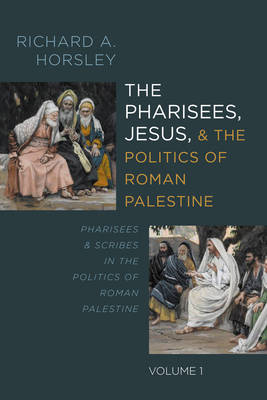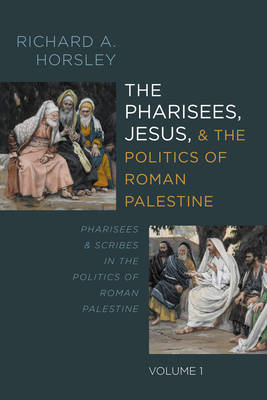
- Afhalen na 1 uur in een winkel met voorraad
- Gratis thuislevering in België vanaf € 30
- Ruim aanbod met 7 miljoen producten
- Afhalen na 1 uur in een winkel met voorraad
- Gratis thuislevering in België vanaf € 30
- Ruim aanbod met 7 miljoen producten
Zoeken
The Pharisees, Jesus, and the Politics of Roman Palestine, Volume 1
Pharisees and Scribes in the Politics of Roman Palestine
Richard A Horsley
Paperback | Engels
€ 49,95
+ 99 punten
Uitvoering
Omschrijving
Understanding of the Pharisees and other scribal groups in the late Second-Temple era has been obscured by the imposition of synthetic constructs of (early) Judaism in the fields of biblical studies and ancient Jewish history. Similarly, the conflict between the Pharisees and Jesus has been obscured and distorted by the continuing imposition of the synthetic constructs of (early) Judaism and (early) Christianity. When the early Hasmoneans restored the temple-state in Judea, the Pharisees stepped into the role of scribes as their intimate advisers. The Pharisees' principal concern was for the operation of the temple-state according to its politeia, the covenantal laws/customs of the temple-state. In their political practice this meant active opposition to and by expansionist Hasmonean high priests such as John Hyrcanus and Alexander Jannaeus and their mercenary troops. Far from having withdrawn from political life, they managed to consolidate their authority as the intellectual-legal "retainers" of the temple-state under Alexandra Salome. In the increasing breakdown of political-economic order under more direct Roman rule through the high priests, the Pharisees evidently managed to become ever more influential in the temple-state as leading high priestly figures became ever more complicitous in Roman rule. After the Roman destruction of the Judean temple-state there is little or no evidence of the Pharisees playing any role in the politics of Roman Palestine.
Specificaties
Betrokkenen
- Auteur(s):
- Uitgeverij:
Inhoud
- Aantal bladzijden:
- 282
- Taal:
- Engels
Eigenschappen
- Productcode (EAN):
- 9798385221691
- Verschijningsdatum:
- 31/10/2025
- Uitvoering:
- Paperback
- Formaat:
- Trade paperback (VS)
- Afmetingen:
- 152 mm x 229 mm
- Gewicht:
- 385 g

Alleen bij Standaard Boekhandel
+ 99 punten op je klantenkaart van Standaard Boekhandel
Beoordelingen
We publiceren alleen reviews die voldoen aan de voorwaarden voor reviews. Bekijk onze voorwaarden voor reviews.







